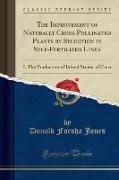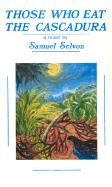- Start
- The Improvement of Naturally Cross-Pollinated Plants by Selection in Self-Fertilized Lines
The Improvement of Naturally Cross-Pollinated Plants by Selection in Self-Fertilized Lines
Angebote / Angebote:
Excerpt from The Improvement of Naturally Cross-Pollinated Plants by Selection in Self-Fertilized Lines: I. The Production of Inbred Strains of CornThe results of previous investigations on inbreeding corn are reviewed to Show the development of the method of selection in self - fertilized lines.Four varieties of corn have been self-fertilized and selected for five generations. Eighty-six lines were started and twenty of these were lost or discarded.The method of procedure was to grow three progenies in each line and self-pollinate five of the most desirable appearing plants in the best progeny each year.A large number of clear - cut recessive abnormalities appeared during the course Of the inbreeding. In all except one case these were eliminated by the fifth generation.NO significant difference in yield was found between segregating and non -segregating progenies in lines Showing recessive abnormal ities in the previous generation. Also lines having recessive abnormalities at the start showed no greater reduction, 1n yield during the five generations than lines that were free from them throughout the experiment.All lines showed a marked reduction in yield and a Slowing down of the rate Of growth. Although great differences were Shown, no lines were as productive as the original variety. NO appreciable correlation was found between the characters of the seed ear, weight Of seed, Size Of seedling, or the appearance of the plants at pollinating time and the production Of grain in the same genera tion.Some correlation in certain characters was found between the first and last generations, particularly in height of plant and in per cent. Of moldy ears. Less association was Shown in amount of tillering and in smut infection, while in productiveness practically no relation was found, showing that good and poor yielding strains may come from productive or unproductive plants at the start.About the PublisherForgotten Books publishes hundreds of thousands of rare and classic books. Find more at www.forgottenbooks.comThis book is a reproduction of an important historical work. Forgotten Books uses state-of-the-art technology to digitally reconstruct the work, preserving the original format whilst repairing imperfections present in the aged copy. In rare cases, an imperfection in the original, such as a blemish or missing page, may be replicated in our edition. We do, however, repair the vast majority of imperfections successfully, any imperfections that remain are intentionally left to preserve the state of such historical works.
Folgt in ca. 5 Arbeitstagen




